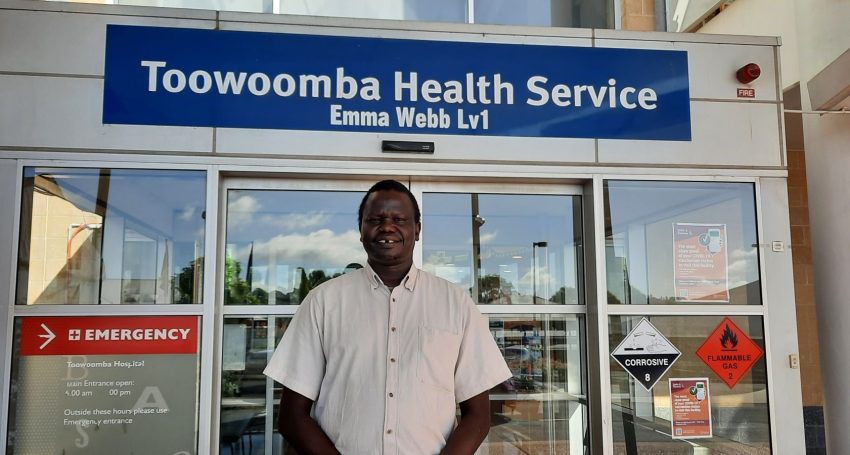Helping people to find hope and peace as a hospital chaplain
Reflections
“Towards the end of our conversation, the patient said that he felt as though his faith had been awakened. He also looked physically different – when I arrived he looked disengaged and down, but when I left his bedside he was relaxed and smiling. Before I left, he asked to pray for me, which was profound,” says hospital chaplain The Rev’d Peter Mayen

I was sitting with a patient by his hospital bedside earlier this month. He shared that he had no living family members and that he was raised in a Christian home of another denomination. He told me that his mother passed away 10 years ago. He was very close to his mother. Before she passed away, she was wheelchair-bound and her mobility limitations impacted her ability to attend church and receive communion. The patient shared that she asked the minister repeatedly for someone to bring her communion, but her requests were always refused. The patient drifted away from his faith as a result. He said that he had become very bitter towards Christian Churches, especially. We talked a lot about the value of forgiveness on our physical, mental and spiritual health.
Towards the end of our conversation, the patient said that he felt as though his faith had been awakened. He also looked physically different – when I arrived he looked disengaged and down, but when I left his bedside he was relaxed and smiling. Before I left, he asked to pray for me, which was profound.
As a hospital chaplain, I minister to patients, family members of patients and staff. Depending on what the person requests, I either keep the conversation secular or talk about spirituality and faith.
I have been serving as a chaplain at the Toowoomba Base Hospital since early December. Initially I was covering for another chaplain while she was on leave. However, I have committed to continuing in this role at least for the next three months.
Hospital chaplaincy is about coming alongside people who are experiencing illness, domestic and family violence, loneliness and mental health crises. As a pastoral carer, I listen deeply with compassion and assure the person of ongoing support, as well as advocate for the patient when needed.
Advertisement
I also administer the sacraments if the patient requests it, including holy communion and anointing of the sick with chrism oil. I haven’t been asked by a family to preside over a funeral yet, but this is another part of my role.
I work three days a week as a chaplain. The role is rewarding because it fits my gifts, training and professional skills. Living through difficulties from a young age, including as a child soldier in Sudan, I understand suffering. I understand that it is a part of life.
The need to forgive and let go of old hurts is a common theme that comes up in hospital pastoral care conversations. I have been chatting to another patient who said he was rejected by his Christian family, particularly by his father, as he was growing up. After being diagnosed with a serious illness, he approached his family to ask if there was a hereditary history of the illness. The family refused to engage him. This left him feeling very hurt. He couldn’t understand why his family would not help him even at a time when he was experiencing a life-threatening illness and painful treatment.
Advertisement
So we chatted about the love of his wife and children for him. And, we talked about some books that could be useful for him to read, including a book about a priest who found hope as he recovered from cancer. I gave him a copy of the book. We chatted about the choices he had – including letting go of the hurt and focusing on those who loved him and on his recovery. He tells me that he has now found peace.
I ask anglican focus readers to pray for me and other hospital chaplains in our Diocese. The work we do is as complex as it is rewarding.
Editor’s note: If you would like to support the ministry of Anglican hospital chaplaincy, please donate online via this ANFIN account, which has been set up especially for hospital chaplaincy in our Diocese. For more information, please email chaplaincy@anglicanchurchsq.org.au.





